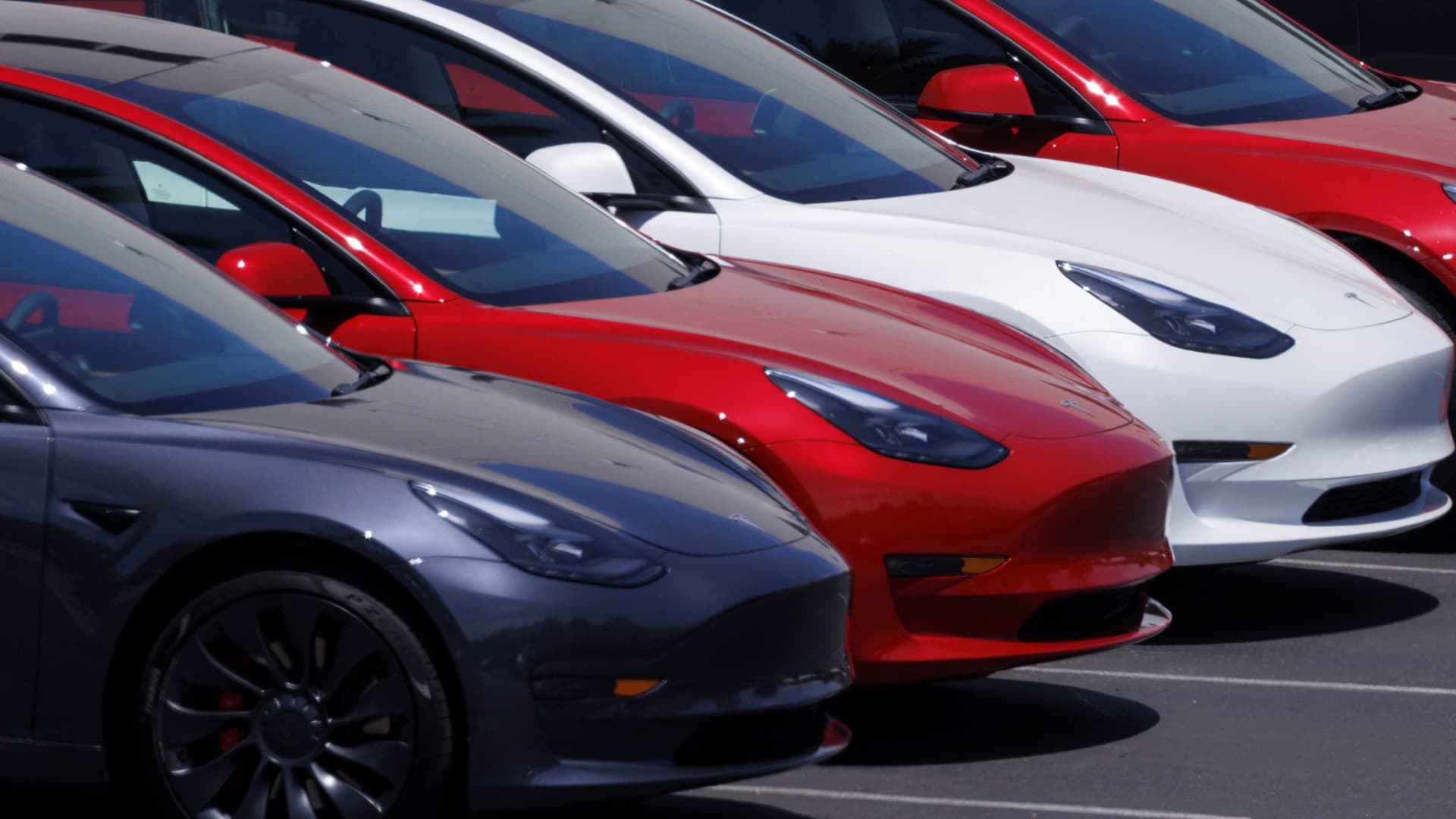Tesla under investigation by NHTSA for two more crashes that may have involved Autopilot or FSD


Tesla vehicles are shown at a sales and service center in Vista, California, June 3, 2022.
Mike Blake | Reuters
The National Highway Traffic Safety Administration has initiated two more special crash investigations into incidents that involved Tesla electric vehicles, and where the company’s advanced driver assistance systems are thought to have been a factor in the crash.
Tesla offers a standard driver assistance package called Autopilot in all its new cars today. It also sells additional features in a package marketed as Enhanced Autopilot or Full Self-Driving in the U.S., which costs $15,000 or a $199 a month. The company also allows some owners to access features that have not been fully debugged under its FSD Beta program, and to test these features on public roads.
None of the company’s cars are autonomous yet, and no vehicle maker is selling a driverless car today in the U.S. Tesla CEO Elon Musk told shareholders a self-driving Tesla would capable of a cross-country demo drive without human intervention by the end of 2017, but the company has never completed that demonstration.
The new crashes that were added to NHTSA’s list of investigations this month included a Thanksgiving Day collision that ensnared eight cars after a driver in a 2021 Tesla Model S was moving erratically through traffic lanes on the San Francisco Bay Bridge.
The driver of the Model S, which is Tesla’s premium sedan, claimed that they were using the company’s Full Self Driving features, according to records released by the California Highway Patrol, as CNN first reported.
Another recent crash added to NHTSA’s list involved a 2020 Tesla Model 3, the company’s entry-level sedan.
According to data obtained from NHTSA by CNBC, the agency is looking into at least 41 crashes involving Tesla vehicles where automated features such as automatic emergency braking, or more extensive driver assistance system features included in Autopilot, FSD and FSD Beta were involved.
The records show that 14 of these earlier investigations concern crashes that resulted in fatalities.
The company is also facing consumer lawsuits and federal and state scrutiny over its safety claims and marketing practices. The California DMV has accused Tesla of engaging in false advertising around its driver assistance systems.
In a recent response to a consumer lawsuit filed in California, Tesla said that its “failure” to realize its “long-term, aspirational goal” does not amount to fraud, and that it would only achieve autonomous driving “through constant and rigorous improvements.”
Shares of Tesla sank on Thursday after news of the crash investigations. Investors also fear weakening demand for the company’s electric cars across the globe.
Amid tough economic conditions, Tesla has recently offered steep discounts on its cars in the U.S., Canada, Mexico and China. Tesla shares have also been weighed down by investors’ concerns that Musk is distracted and harming the Tesla brand with his controversial management of Twitter and his incendiary political remarks on the social media platform.